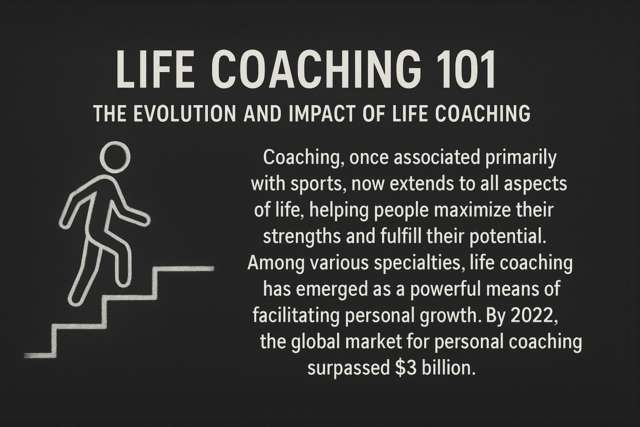|
Activity (The following activity is only for those who may not yet know what their vocation is.) Now, eliminate the desires of your youth that you genuinely feel were not a reflection of who you are as an individual rather than simply a job you thought was neat or interesting. For example, a ten year old boy might have wanted to be a professional football player because he loved the game and loved competition � two things that might still be true, even if he's now an accountant. For him, that desire would stay on the list. For the accountant who wanted to be a professional football player when he was ten because it would have been really cool? That we can eliminate. |
When you look at the jobs and characteristics still on your list, see if you find any commonalities. For example, imagine a woman who wanted to be a teacher at 10, a social worker at 15, and a civil rights attorney at 20; though she may be working in an art gallery, it is obvious to see that helping people is important to her. Now do this for you and your life.
If you are still struggling, one usually easy way to get on the right path is to imagine yourself in prison. Seriously. While in prison, it is possible to study virtually any subject. What would you study? Are you a doctor but really love art history? Maybe you've been working since 16 in construction but would love to learn how to bake.
Next, brainstorm all of the different careers that might embody those characteristics that are clearly important to you. Do not worry about being practical right now, simply brainstorm.
Now, which potential new future seems the best fit, i.e. which requires the least amount of time and expense for the biggest payout? This is where practicality comes in. If you want to be a college professor but do not have any college education and you are trying to feed a family of 6, your dream may not be practical right now. That doesn't mean however that you cannot start on that path, just be realistic about when you'll arrive at the end of it.
Also remember that for each characteristic or passion you have, there will usually be many possible choices. One of the most common dreams to have today is to work for yourself. And we certainly can all understand that; who among us hasn't suffered through a terrible boss? Maybe you want to work for yourself running your own motorcycle shop, but you do not have any money saved to open up your own business. Is it more important to own your shop or is it more important to work for yourself and have time to work on your own bike(s)? Do you need to own the shop all yourself or would a partnership work? What kind of background and experience do you have?
Now that you have chosen your path and made your goals, this is the time when you may need to share these plans with someone. If you are responsible (whether in full or in part) for someone else's income or resources (such as a parent, spouse, or business partner), you will need to determine when and how to communicate your new plans to them. If your new goals will bring in sufficient money for the family but may make it tighter financially, highlight the positive benefits as well (more time home, more flexible schedule, bigger money long-term, and so on). If your spouse is hesitant or you anticipate problems, pitch it like a business plan. Do your homework beforehand so that they understand you know what you are getting into.
Too often we spend our time comforting ourselves with money; this may occur in an obvious way, such as growing our ego as we grow our bank account or less obviously like buying an ice cream cone when we've had a hard day. Sometimes a person may see someone homeless, then go in an electronics store and drop $200 just to remind themselves that they can; this tends to occur most often with people that, at one time or another, did not have enough to make ends meet.
|
Activity Retrieve your bank statement (or pull it up online) and take out your journal. Try to identify any purchases that you made with the intention of comforting yourself, no matter how big or small, and write it (and the amount of money it cost) down. Did you order pizza because you had a long day? Go out with the boys and drink too much because you had a fight with your wife? Whatever the reason, if comforting yourself was the goal, it goes on the list. Now, total it up. Now imagine what you could have done with that money. |
Living abundantly is a great deal about your attitude; once again, we recognize that having a grateful heart can go a very long way. Just as you might remind yourself about how much you love your child when they've done something awful, you must also sometimes remind yourself about how much you have when you cannot have something you want.
|
Activity Now, using your journal, write down all of the things that you have (in general terms). You may have a loving spouse, a safe place to live, food in the fridge, but not much else. Now imagine you have a huge mansion filled with wonderful things and no one to share them with. What you have quickly begins to look better. If you are single, is not it great that you may already know what to be really grateful for so that you can focus on developing healthy relationships rather than accumulating stuff? The next part of this activity may be a struggle, but is worth every second; you may need more time so if you need to break this up over several days, that's totally okay: Write down everything that you own that you do not absolutely need. Everything: every extra stitch of clothing, desserts, multiple shoes, movies, music, you name it. If you do not need it to live or to work, it goes on the list. Your list may be very different than someone else's; you are your own life coach, so it is up to you to determine if an item is truly necessary or not. |
Now look at the list of "extras" you have. Think about how many of them you thought were necessities when you bought them, but really are not. Imagine if you lost everything today how nothing that made it onto that list would be anywhere that you would be worried about. Many of us tend to buy things because we like buying. It feels good. Whether it is comfort or ease or impulse, we buy things that we do not need, oftentimes with money we do not have.
|
Activity Appreciating all that you do have is the first step towards tackling your money woes and your shopping habit. The second step is to identify things that do not take any extra money (or a very minimal amount) that bring you pleasure. A few suggestions to get you started are as follows:
|






























